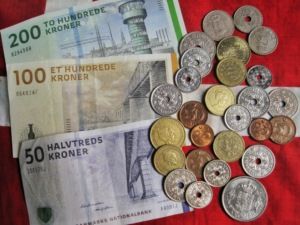News
Business Round-Up: No end in sight for high inflation
This article is more than 3 years old.
Meanwhile, the bankruptcy rate is soaring

Inflation has hit a three-and-a-half-year low in Denmark. Photo: Pixabay/assy
Despite falling energy prices, there is no end in sight to the high inflation, which continues to be above 10 percent, according to the latest figures announced this month.
Analysts predict the high inflation will continue into the first few months of 2023.
Currently 10.1 percent, inflation has not been this high since 1982, according to Danmarks Statistik.
Tough on families
“We had clearly hoped for a fall and a relief in today’s figures. The sharp price increases are gnawing through Danes’ household budgets,” commented Jeppe Juul Borre, the chief economist at Arbejdernes Landsbank, wrote in a comment.
According to his calculations, an average family must find 45,000 kroner more in its budget for annual consumption in comparison to 2021.
Hopeful about 2023
However, Dansk Erhverv does not think inflation will rise any higher.
Its economists are optimistic about next year and confident it it will fall to approximately 2 percent by the midway point.
The last times inflation reached such high levels in Denmark were during the Korean War in 1950 and the oil crises in the 1970s.
Exports fell in September
Exports fell by 3.5 percent in September, according to Danmarks Statistik. Goods exports fell by 3.9 percent, and the sale of services by 3.0 percent. Despite the drop, figures have risen by 6.8 percent since July. The exports surplus for 2022 represents 277.4 billion kroner so far.
Danes overestimate how much work is undeclared, but some more than others!
Some 19.8 percent of all work in Denmark is undeclared to the tax authorities, according to a new study by the Rockwool Foundation’s Research Unit that questioned almost 2,400 people. Danes tend to overestimate how much work. Asked to guess, those who don’t declare all of their income said 40.4 percent, while those who declare everything said 29.0 percent.
Novozymes and Grundfos among first to set net-zero target for 2050
The global biotechnology giant Novozymes and the pump manufacturer Grundfos have had their 2050 net-zero target validated by the Science Based Targets Initiative (SBTi), a climate organisation. According to the agenda, they will widely reduce their gas emissions leading up until 2030, before reaching net-zero in 2050.
Almost half of all Danes likely to travel abroad next year
Some 47 percent of Danes plan to travel abroad next summer, according to a Dansk Erhverv survey. In 2022, the total was only 36 percent and in 2019, before the pandemic, 41 percent.
Bankruptcy rate is soaring
The number of bankruptcies among Danish companies has reached its highest level since 2016. Some 274 declared bankruptcy in October, according to Danmarks Statistik – 6.1 percent more than in September. The bankruptcies resulted in the loss of 1,505 full-time employees jobs – 21.2 percent more than in September. The construction and restaurant sectors are the worst affected, with bankruptcy numbers 70 percent higher than in 2019. Economists are pessimistic and warning that a lot more bankruptcies will take place in the coming months.
Coloplast income increasing, but no profit
The medical device company Coloplast has confirmed a 16 percent increase in revenue for its 2021-22 financial year 2021/2022, but limited profits due to acquisitions such as the Swedish company Atol Medical. Coloplast chief executive Kristian Villumsen expects revenue to grow between 11 and 12 percent over the next fiscal year.
Matas reports significant growth in online sales
Danish pharmacy chain Matas has reported a 1.6 percent increase in profits for the second quarter of its 2022-23 financial year compared to the same period in 2021. Online sales rose by 9.9 percent and sales at physical stores by 0.7 percent. Matas is expecting to declare total revenue of between 4.4 and 4.5 billion kroner for the fiscal year.
Several museums forced to temporary close due to energy crisis
A few Danish museums have announced they are closing this winter due to the cost of their energy bills: Museum Sønderjylland, which has confirmed the dismissal of 11 employees, Skive Museum, Bornholm Museum and Naturkraft in Ringkøbing. Danske Museer head Nils M Jensen has appealed to the government for an urgent aid package, predicting more shutdowns and layoffs over the coming weeks if nothing changes.










































